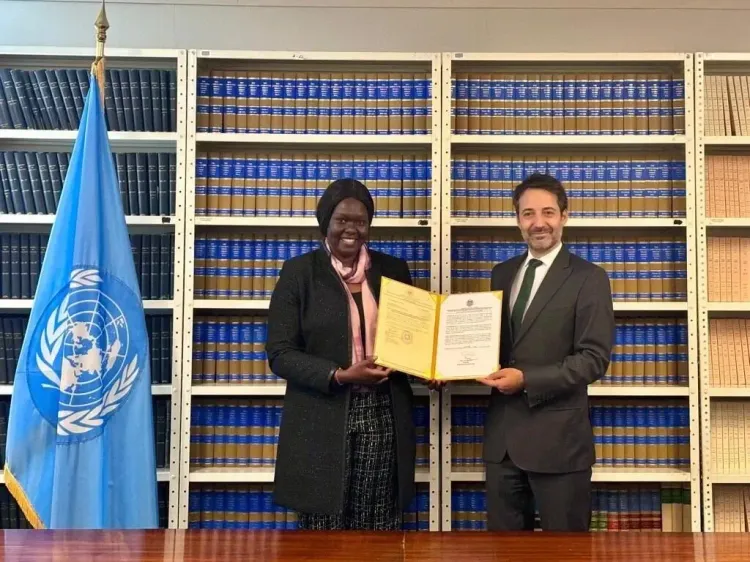What Does Mali's New Law Mean for Stateless Persons?

Synopsis
Key Takeaways
- Mali's new law protects stateless individuals' rights.
- It defines statelessness clearly and outlines necessary rights.
- Equal access to health, education, and employment is guaranteed.
- UNHCR supports the implementation of this law.
- International cooperation is essential for success.
Bamako, July 1 (NationPress) The United Nations Refugee Agency (UNHCR) has expressed its approval of Mali's newly enacted law designed to safeguard the rights of stateless individuals and enhance their living conditions, as stated in an official announcement.
"The enactment of this law signifies a significant advancement in the protection of human rights within Mali and illustrates the government's dedication to eradicating statelessness. It instills hope in countless vulnerable individuals," stated Georges Patrick Menze, the acting representative of UNHCR in Mali.
As per UNHCR, this legislation clearly defines what constitutes statelessness, outlines the rights and responsibilities of stateless individuals, and presents viable solutions. It encompasses both stateless migrants and those born in Mali, ensuring equal access to health, education, employment, housing, and justice alongside Malian citizens, according to reports from the Xinhua news agency.
The law also shields stateless individuals from penalties arising from the absence of legal documentation, forbids their expulsion except under specific circumstances, and permits them to obtain or confirm their Malian nationality.
In Mali, numerous individuals, particularly those from nomadic tribes, refugees, and isolated border communities, encounter statelessness due to a lack of official civil documentation.
Since 2017, with the assistance of UNHCR, Mali has granted citizenship to nearly 2,400 individuals and has issued civil documents to over 30,000 people.
UNHCR has pledged ongoing support for the law's implementation and has called for sustained international assistance.








